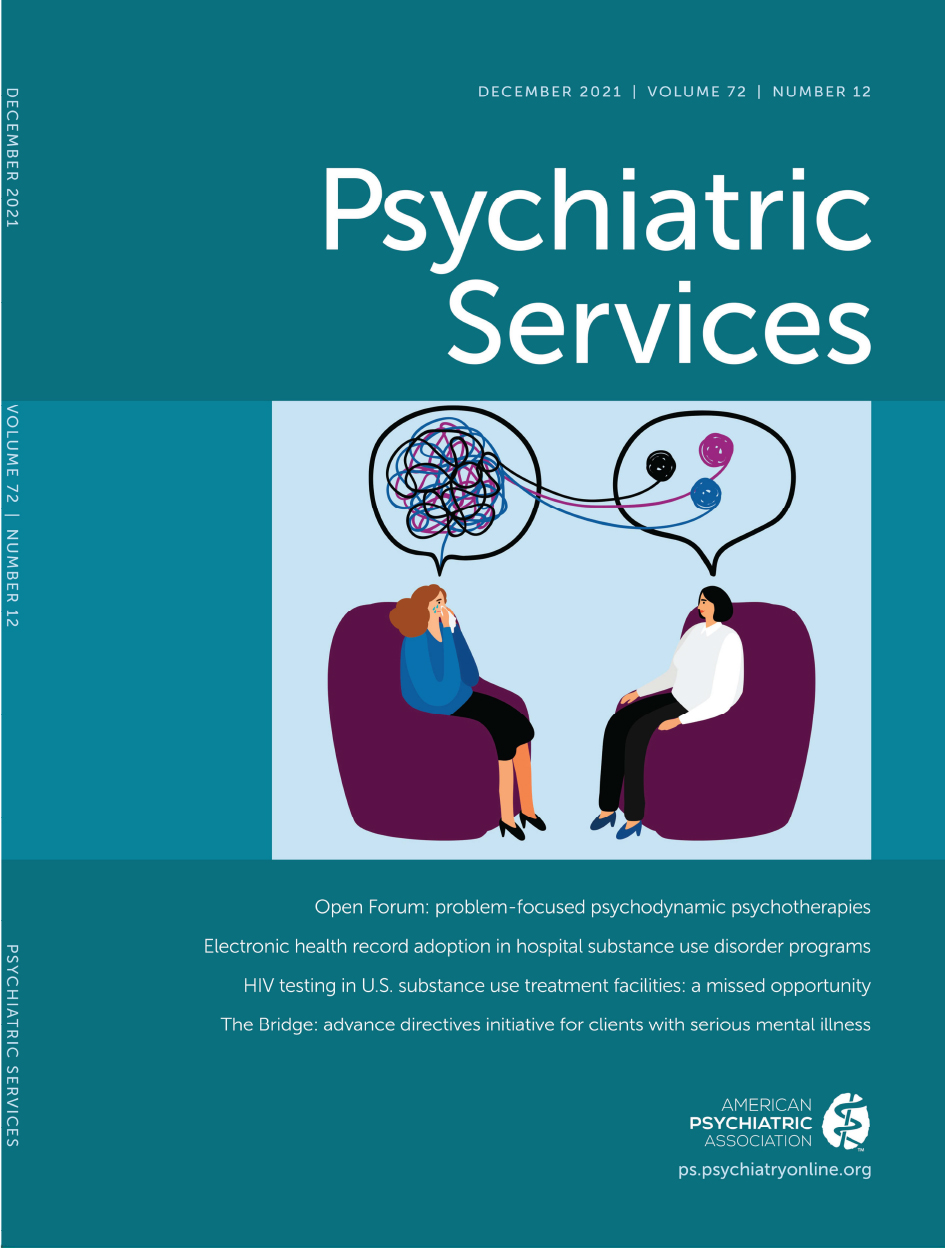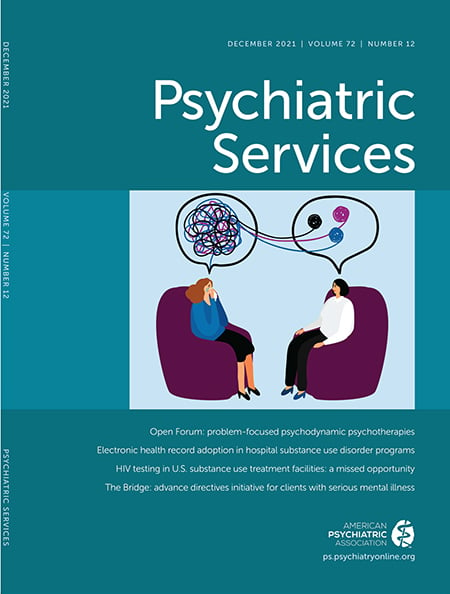TO THE EDITOR: We read with interest Sawrikar et al.’s article on staged care in the June issue of
Psychiatric Services. The article provides an overview of care planning for affective disorders and multidimensional and developmentally sensitive approaches for determining service intensity and specifying “right care first time” services (
1). Unfortunately, Sawrikar et al. did not acknowledge the existence of a set of instruments, the LOCUS (level of care utilization system), which is closely aligned conceptually with the staged care approach. The LOCUS family of tools consists of the LOCUS (for adults), copyrighted by American Association for Community Psychiatry (AACP) in 1999 (
2); the CALOCUS-CASII (for children and adolescents, ages 6–18 years), initially copyrighted jointly by the AACP and American Academy of Child and Adolescent Psychiatry (AACAP) as the CALOCUS in 2001, now called the CALOCUS-CASII (
3); and the ECSII (Early Childhood Service Intensity Instrument for children from birth to 5 years), copyrighted in 2009 by AACAP (
4).
These tools involve multidimensional assessment and an algorithm that integrates scores on each dimension assessed to provide an overall recommended service intensity that ranges across seven levels, from basic care to secure 24-hour services with psychiatric monitoring. The LOCUS family of instruments explicitly identifies types of services, including treatment interventions, formal care coordination, and informal supports, that are “right sized” for the individual by type, intensity, and duration. This approach conceptually is very similar to the staged care model but with important differences.
First, the LOCUS family of tools determines service intensity need by using dimensions independent of DSM diagnosis, facilitating use of the instrument by providers who are not necessarily licensed mental health professionals (e.g., in primary care, child welfare, juvenile justice, and education). Second, determination of severity is achieved by noting anchor points within the highest level for each dimension. This methodology supports better interrater reliability than using less precise descriptors such as “mild-to-moderate severity.” Third, the ECSII is for children from birth to 5 years old, rounding out a family of tools that truly covers the life span. Finally, the CALOCUS-CASII and ECSII are firmly rooted in a system-of-care approach, endorsed by Centers for Medicare and Medicaid Services, the Substance Abuse and Mental Health Services Administration, and most state departments of mental health to support child and adolescent mental health.
We agree with Sawrikar et al. that more research is needed to support validity and reliability of these types of instruments. However, the assertion that “the present article is the first attempt to stage childhood disorders” is incorrect. We hope there will be acknowledgment of the LOCUS family of tools in future presentations. These tools have been widely used in population health contexts for more than 20 years in most U.S. states and in a few other countries. Recently, the LOCUS tools have been required for use by commercial insurance companies to authorize and monitor the delivery of behavioral health services in the
Wit v. UBH class action lawsuit in California and subsequently enacted by the California legislature (
5). The time has come for nonbiased, structured, evidence-based tools to support decision making for mental health service delivery. We are proud that LOCUS, CALOCUS-CASII, and ECSII are tools that lead in this important effort in clinical care.

